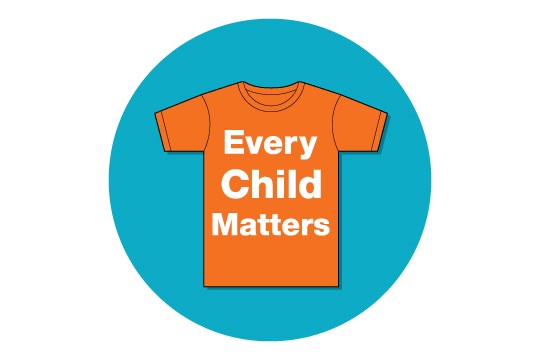LAKELAND - As Orange Shirt Day is being acknowledged across the nation today, University nuhelot’įne thaiyots’į nistameyimâkanak Blue Quills, located just outside of St. Paul, is hosting its own, virtual - yet private - event, recognizing the painful nature of the survivor stories that continue to be told.
Located just a few miles west of the town of St. Paul, Blue Quills was once a residential school operated by the Catholic church, beginning in 1857, and supported by the federal government. In 1931, the school was relocated to its current location. In 1971, "after protests by the local Indigenous people, the school was turned over to the Blue Quills Native Education Council and became the first former Canadian residential school administered by Indigenous people," explains Peggy Shirt, student services coordinator with the univeristy.
The school is now a place of learning and healing, but the past has not been forgotten.
"There were many atrocities committed at these residential schools, and children were taken as young as five years old, sometimes forcibly," explains Shirt, when speaking of the importance of Orange Shirt Day. "Survivors have reported experiences such as sexual, mental, and physical abuse. Some accounts report beatings, severe punishments, overcrowding, illness, the forced wearing of soiled underwear on the head, and children being used in medical experiments. Some children died in these schools."
Those who survived, those who died, and those who suffered because of the residential school experience deserve to be remembered and honoured for their courage and resiliency, says Shirt.
"It is important to remember also, that they were all powerless children with parents who were not given a choice."
When asked what message she would like to get across on Orange Shirt Day, Shirt says, "Every mother and father will understand the pain of their children being forcibly taken away and the overwhelming anxiety of not seeing them or knowing how they were being treated. It is understandable how family units break down if all the children are removed for years and the parents do not get to continue learning how to be a parent and the children do not experience the love and sense of belonging within a family and community unit."
She asks people to imagine living in a cold, sterile environment, "which is neither loving nor caring and is, in fact, abusive." Long-term intergenerational trauma occurs in these environments, and studies now show the chemistry of the human brain changes under those conditions, says Shirt.
"This is the legacy that has been left to Indigenous peoples by the residential school system. It is a testament to the strength and resiliency of Indigenous peoples that we continue to survive and thrive today."
This year, Blue Quills will be hosting a virtual Orange Shirt Day event, open only to staff and students. There will be presentations that include a virtual tour of the residential school, survivor stories, and a questdion and answer session, smudging and song.
"This presentation is limited to staff and students only in recognition of the painful nature of the survivor stories," says Shirt.
In honour of Orange Shirt Day, Shirt encourages everyone to do some research into the residential school system that existed in Canada. Those interested in doing research can find information online and through the Truth and Reconciliation Commission documents.
Shirt says they can also contact Blue Quills and staff can provide them with information.
Pick up this week's issue of Lakeland This Week for more information on Orange Shirt Day from across the region.




